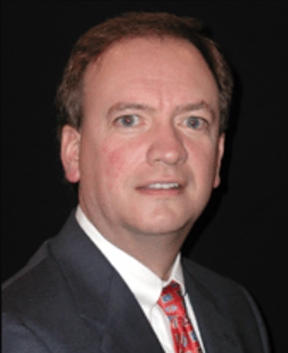Prison sentence for $2M Westchester fraud marks former Stamford CPA’s fall from grace
Steven L. Henning, a former accountant from Stamford who had forged stellar academic and business credentials, has been sentenced to federal prison for more than four years for operating a $2 million intellectual property fraud in Westchester County.
U.S. District Judge Cathy Seibel sentenced Henning on Jan. 30 to 51 months in prison and three years of supervised release and ordered him to pay back $938,246 to his victims.

His attorney, Michael K. Burke, had recommended one year and a day in prison, arguing in a sentencing memo that his client”™s “conduct reflects an aberration in his otherwise distinguished career.”
Assistant federal prosecutor Margery B. Feinzig called for up to five years and three months in prison.
“He deliberately chose to use his intelligence, education and career success to exploit, manipulate and defraud,” she wrote in a sentencing memo.
Henning has a doctorate in accounting and economics, an MBA in general management and a bachelor”™s degree in accounting and finance.
He was an assistant professor at the University of Colorado and Southern Methodist University.He also served as an academic fellow for the chief accountant of the U.S. Securities and Exchange Commission.
He was a partner-in-charge of a litigation group at Marks Paneth Accountants & Advisors in Manhattan, specialized in anti-fraud and forensic accounting services and served on the executive committee.
In 2008, while working for the accounting firm, he formed an intellectual property business that eventually became known as OpportunIP, with offices in Tarrytown and Purchase.
From 2012 to 2017, according to court records, he persuaded two people to invest $2 million in the company. He used phony licensing agreements for deals that did not exist and fabricated bank account statements purporting to show more than $2.5 million in assets he did not have.
In 2017, Marks Paneth placed him on administrative leave and began an internal investigation.
Henning moved on to Global Economics, an accounting firm in Chicago where, the prosecution says, he “continued his charade.”
He convinced the firm to hire him for $240,000 in draw payments, by claiming to have a pipeline of $2 million in billable revenue and imminent commitments for another $2 million. The documents that backed his claims were fraudulent and forged.
Burke argued that Henning did not benefit from his conduct at OpportunIP. He invested nearly $384,000 of his own money, he took no salary and he has paid back $900,000 to one of the investors. When the company was failing, he “made very poor decisions and created documents to try and show that the deals were further along.”
Though he got $240,000 in salary from Global Economics, he had only represented business leads as “more developed and further along in the process than they were.”
Henning violated the law, Burke stated, “but he should not be judged solely by his worst moments and conduct. His life is so much more than that, and full of good.”
He is a devoted family man. He is active in church and was engaged in service projects in low-income neighborhoods. He had never been professionally disciplined and he has no prior criminal record. He was committed to his work at Marks Paneth, “until OpportunIP unraveled.”
A long prison term, Burke argued, would not protect the public from further crime.
“As for deterrence,” he stated, “conviction has ended his career,” he has lost his CPA license and he has millions of dollars in court judgments against him.
Feinzig argued that Henning”™s conduct was not a temporary lapse in judgment or an aberration.
He lied “nearly daily” for five years, during the OpportunIP scheme. The fraud was difficult to detect because of his “stature, demeanor, intelligence and knowledge of accounting.”
One of his victims was a former student he had mentored. The other victim is a lawyer with training in identifying fraud who described Henning as “cerebral and recognized as an expert in his field of accounting,” who could fool even sophisticated investors and lie in compelling detail.
“Henning had every opportunity to lead a successful, law-abiding life,” Feinzig stated, “but instead he deliberately chose to use his intelligence, education and career success to exploit, manipulate and defraud.”
Moreover, she stated, Henning manipulated “the very people who trusted him, were most likely to believe him and were not likely to question him.”
Nothing in the record, she said, reflects that Henning has reckoned with his conduct or is sorry for his actions.
Seibel ordered Henning to surrender to the federal Bureau of Prisons on March 23.